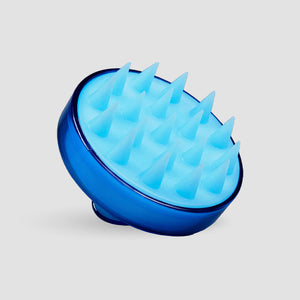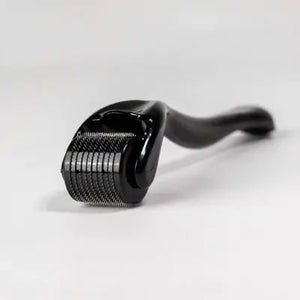
Hair loss due to menopause - what to do?
Table of contents
- Menopause is often to blame for hair loss
- These are the causes
- This is what hair loss looks like in women
- Seek a consultation with a doctor
- What can be done about it?
- The savior of the hairstyle: the hair transplant
- Conclusion: If hair loss is caused by menopause, a hair transplant can help
Menopause is often to blame for hair loss
During menopause, women experience not only mood swings and sleep problems, but also physical symptoms such as hot flashes and sudden weight gain. Menopause can also be to blame for hair loss.
Once again, hormones are to blame – similar to what happens in men. Hair loss isn't an uncommon phenomenon, by the way. About one-third of all women suffer from it. But what can be done about it? And why aren't all women affected equally?
These are the causes
The female hormone estrogen primarily ensures that women's hair stays in the so-called growth phase longer. This is why most women have beautiful, shiny, and full hair, while many men struggle with hair loss at a very early age.
However, during menopause, which usually begins in the mid-40s, estrogen production declines . This is the moment for testosterone, the male hormone.
In androgenetic alopecia, the hair roots react sensitively to dihydrotestosterone (DHT), which is formed from testosterone. If male and female hormones are imbalanced and the woman has a hereditary predisposition to this, hair loss due to menopause is the result.
This is what hair loss looks like in women
The symptoms of hereditary hair loss due to menopause or androgenetic alopecia are somewhat different in women than in men . While men usually struggle with the famous receding hairline and, later, the tonsure, women's hair becomes progressively thinner.
Hair loss during menopause usually begins at the crown. Initially, the hair there becomes progressively thinner and the crown becomes wider. Eventually, the hair thins out, so the scalp begins to show through.
It's not like clumps of hair suddenly appear in your brush or on the floor. If menopause is to blame for hair loss, it's a more gradual process , as the lost hair simply doesn't grow back.
Pitch Section Get a free hair analysis
Seek a consultation with a doctor
To a certain extent, hair loss is a completely normal biological process . After all, the scalp needs to make room for new hair growth. So, don't panic if you find a few extra hairs in the sink in the morning.
However, if the hair loss in the affected woman during menopause gets out of hand, the hair becomes noticeably thinner and no longer grows back, a visit to the doctor is recommended .
Hair loss in women can have a variety of causes. Menopause isn't always to blame for hair loss. Stress, poor nutrition, and/or extreme diets can also have a disastrous impact on hair.
What can be done about it?
If a diagnosis of "androgenetic alopecia" is made for hair loss due to menopause, it is important to act as quickly as possible. If hair loss is still in its early stages, minoxidil, a treatment applied directly to the scalp, may be helpful.
Minoxidil, however, has two disadvantages : First, it only helps if treatment is started very early. Second, hair loss begins again as soon as the medication is discontinued.
While there are women who bravely resort to razors and scissors to go bald, for most women, permanent hair loss is a major psychological burden .
The savior of the hairstyle: the hair transplant
The only permanent and lasting treatment for this type of hair loss is a hair transplant. You'll regain radiant, full hair and finally be able to look in the mirror with satisfaction again.
At Elithair, hair transplantation is performed using the FUE method, in which the hair follicles are removed individually and then reinserted into the recipient area.
This way, unsightly scarring is largely avoided, and your hairstyle will have the volume it deserves. Learn more about your own hair treatment and the opportunities available for your hair type during your free hair analysis.
Conclusion: If hair loss is caused by menopause, a hair transplant can help
When women suffer from hair loss, it's particularly stressful. Thick, long hair is especially important for women. Menopause is often the culprit for hair loss in women who suffer from it.
The only treatment that truly and effectively helps is a hair transplant . With it, women can achieve radiant, full hair, and the days of thinning hair are finally over.
Feel free to contact the experts at Elithair for a free hair analysis . They are available to answer any questions you may have and to advise you on your individual situation.




















